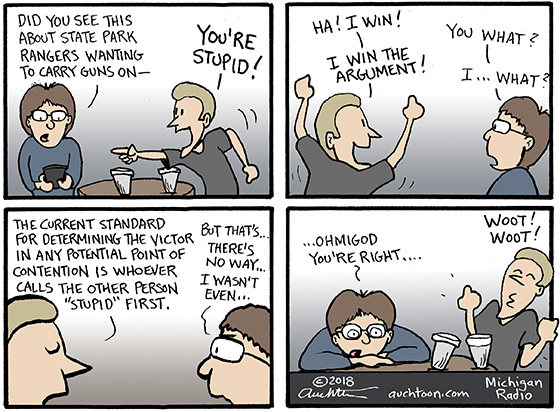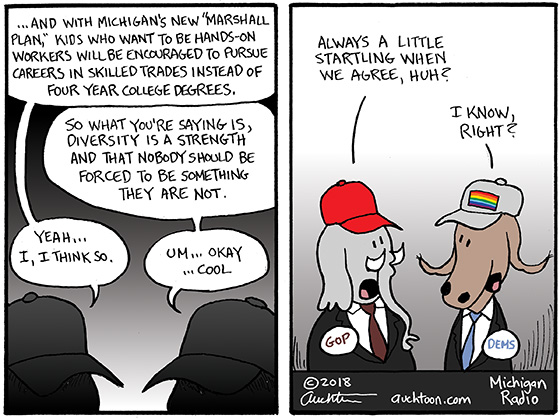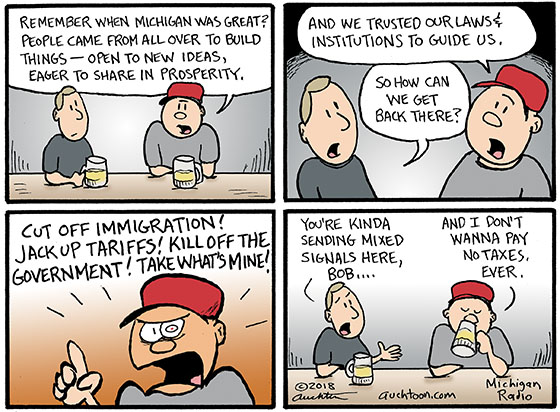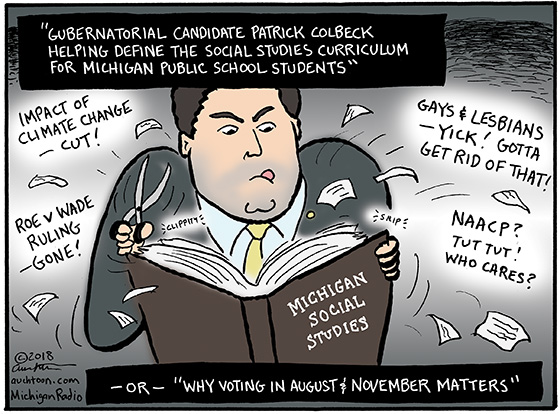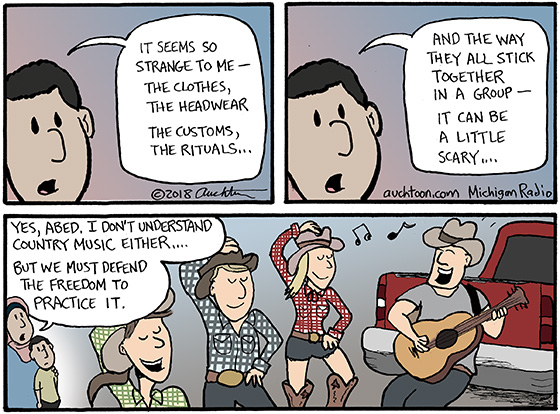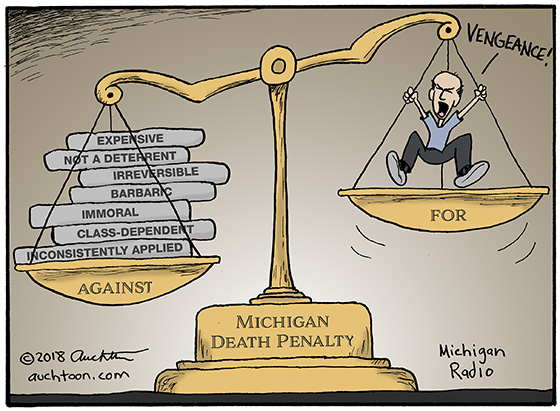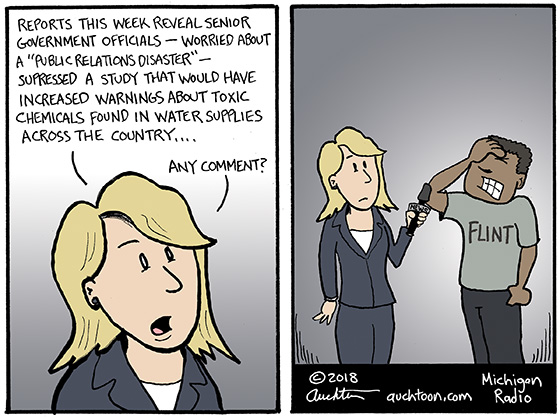Michigan’s New Education Award
My household received a mailer this week that was jammed with praise for Lt. Governor Brian Calley and his boss, Governor Snyder. It exhorted me to “take the Comeback to the next level,” which included the specific goal of “making Michigan’s pre K–12 system the best in America.”
This was either outrageously ambitious or incredibly ill-timed because I had just heard a report on Michigan Radio that Michigan has recently become the only state failing to meet special education requirements and now requires federal intervention. Huh. That doesn’t make any sense. How is Calley going to make us the best, when he proudly aligns himself with the leadership that has made us the worst?
It’s a direct contradiction, and yet I have all been so thoroughly gaslit these days, I start to question myself. Technically, the mailer wasn’t from Calley or Calley for Governor, but from “The Fund for Michigan Jobs.” Did Calley even know about this? Can he be held fully accountable? Aren’t there other players who have contributed to this? And I have heard on more than one occasion that Calley is an advocate for those with special needs and a fine Christian man. “Whatsoever you do to the least of my people….” Calley knows all about that, right?
Thoughts can become muddled quickly, which is why it’s especially important to seek fresh air and breathe the truth whenever possible. A women named Marcie Lipsitt seems to have a handle on this particular situation. As a special education advocate for 20 years, Lipsitt is able to provide a full assessment of how the Michigan special education system has reached this low point and a clear-eyed vision (that is without political agenda) for improving it. I encourage you to listen to the full story.


